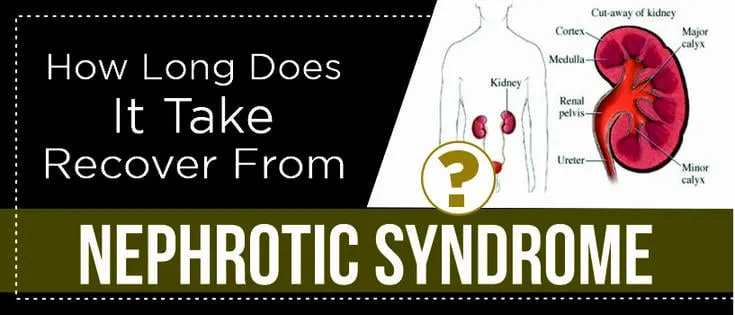
A kidney disorder causing the body to excrete too much protein in the urine, along with other symptoms, is known as Nephrotic syndrome. It is often caused by damage in the small blood vessels in the kidneys that help in filtering waste and excess water from the blood. Ayurvedic Nephrotic Syndrome Treatment identifies the Nephrotic Syndrome symptoms and the causes and then works to treat it from the root cause. Nephrotic Syndrome Treatment in Ayurveda has thus become a blessing for renal patients.
Nephrotic Syndrome symptoms can be identified as swelling around the eyes, feet and ankles, bubbly urine and weight gain due to fluid retention or oedema.
Nephrotic syndrome is considered a pathological condition where the glomeruli in the kidneys are affected, and the result is observed as increased permeability of the glomerular basement membrane to plasma protein. This increase in permeability is characterised by excessive proteinuria, hypo-albuminemia, hypercholesterolemia and oedema. A nephrotic syndrome is found to account for roughly 20% of all End-Stage Kidney Diseases (ESRD), creating it as not to be overlooked cause. Nephrotic syndrome is easily observed in every age, irrespective of gender and race. However, the prevalence is more profound in adults in comparison to children. Similarly, males are more prone to nephrotic syndrome than females.
The classical ayurvedic text does not address any term named nephrotic syndrome. Ayurveda’s essential concepts of identifying the causes and designing a treatment therapy can be applied to any ailment, even if the disease isn’t addressed in ancient literature. Therefore, by correlating the symptoms with a pre-described condition, a treatment is designed. Albuminuria with albuminemia, hyperlipidemia and oedema may be classified as prameha in Ayurveda. Prameha in ayurveda is further classified into many types. It is a condition of the urinary system with altered urine composition, frequency and quantity of urine. It has been observed that urine with albuminuria is concentrated, viscid, or dense. On correlating the characteristics with various types of prameha described in the ancient texts, it has been found that the characteristics are linked to sandrameha (a prameha subtype). It has been described in sandrameha that the kapha and vata are dominant amongst tridosha. It is also described that rasa, mutra, udaka, and ojas are vitiated in sandrameha.
Nephrotic syndrome, when analogised in terms of ayurveda, is defined as an increase in kapha dosha, as well as the vitiation of rasadhatu, ojas, mutra, and udaka, involving mutravaha and udakavaha srotas. According to Ayurveda, it is caused by the blockage of minute bodily channels called strotas in the kidneys. Mutravaha strotas are bodily channels responsible for the passage of liquid in and out of the kidneys. When the incoming strotas are blocked, the kidneys are deprived of fluids. It results in shrinkage of kidneys, and when the outgoing strotas are obstructed, swelling can be observed in the body.
Ayurvedic Nephrotic Syndrome Treatment is a specially designed treatment system that employs various treatment methods, including medicines and other ayurvedic therapies. When these therapies work synergistically, the effects of the therapies are observed as a beneficial outcome.
Ayurveda uses natural resources for the treatment of diseases. The herbs used in ayurveda are easily accessible and are thoroughly studied for their medicinal properties. Each herb used as medicine is described with all the medicinal properties and modes of action. On identification of symptoms, the herbs are picked based on their health properties and mode of action. Ayurvedic Medicine For Nephrotic Syndrome has a list of specific herbs that directly affects the kidney cell to improve their function, decrease the auto-immune and antiinflammatory pathology and rejuvenate the cell. The herbs described in ayurveda for renal diseases are:
These medicines can be used all alone or in combination, depending upon the need.
It is a herb mentioned in ayurveda for treating kidney diseases. It works as an excellent diuretic and speeds up the filtration process. It acts directly on nephrons damaged by diabetes. Thus, specifically due to these properties, it can flush out excessive fluids and other toxins easily. It also works on the heart and increases blood output. It also increases the blood circulation to kidneys, thus reviving the kidney from many diseases like renal failure, nephrotic syndrome and GFR.
Gokshura in ayurveda is described as “Mutral”. It means it increases the frequency and quantity of urine or can be considered a diuretic. Gokshuru is thus used in the treatment for kidney diseases to increase urine output. It helps to flush the toxins out from the urinary tract and kidneys.
Ayurveda says that due to improper digestion of foods, toxins remain in the body as ama.
Gokshuru is also helpful in improving the body’s metabolism because of its ama-removing nature. It also inhibits the formation of kidney stones.
It is also the best genito urinary tonic. It also strengthens the kidneys, urinary bladder, and ureter and penis by increasing blood circulation in these areas.
It is also a urine alkaliser that helps with the problems associated with micturition. It also lowers the risk of the formation of kidney stones.
Raktchandan contains many diverse medicinal properties. It is diuretic and anti-infective. It is also a potent urine alkaliser.
It is a combination of various herbs used for renal problems, and they improve kidney functions at all levels.
Ayurvedic treatment for nephrotic syndrome can help in the reversal of nephrotic syndrome. Karma Ayurveda provides relief to all kidney disease patients with their ayurvedic medicines. For all kidney-related queries, please contact Karma Ayurveda Kidney Specialist Hospital.
Second Floor, 77, Block C, Tarun Enclave, Pitampura, New Delhi, Delhi, 110034